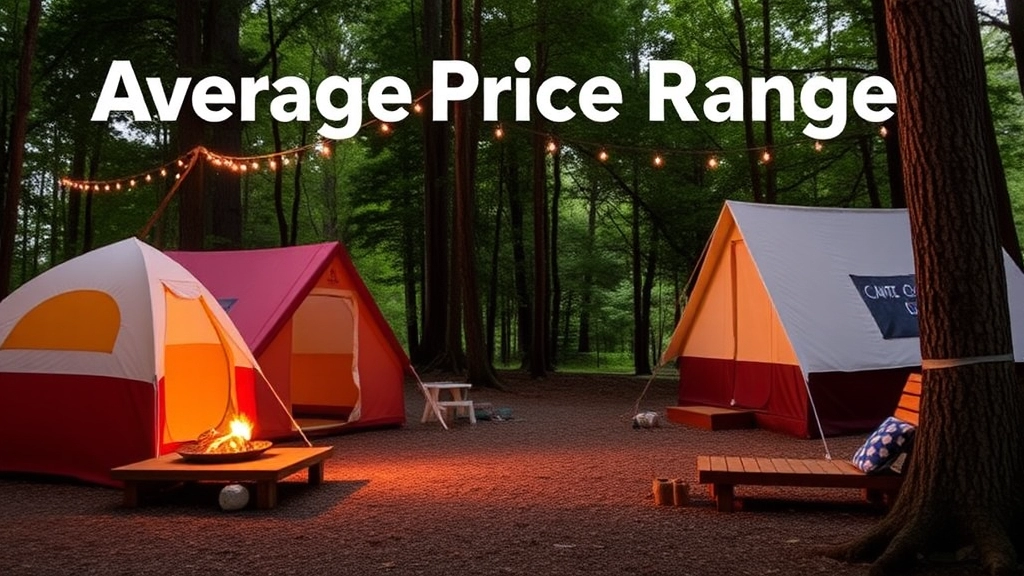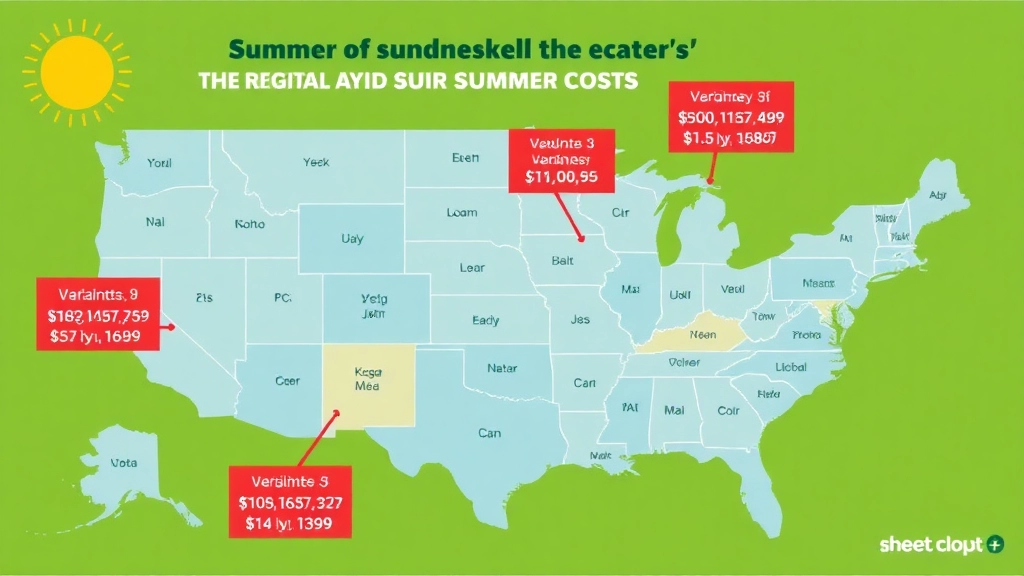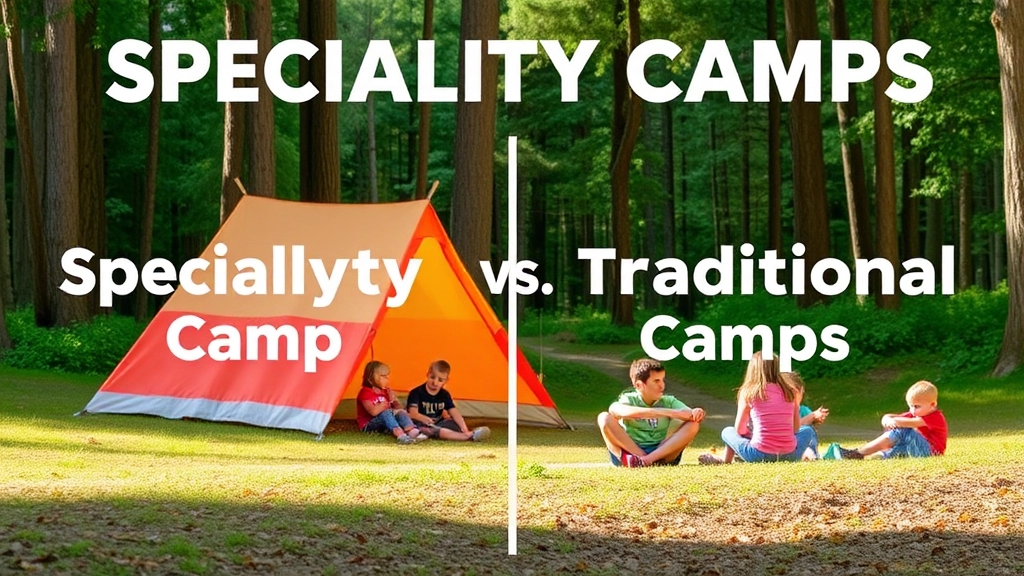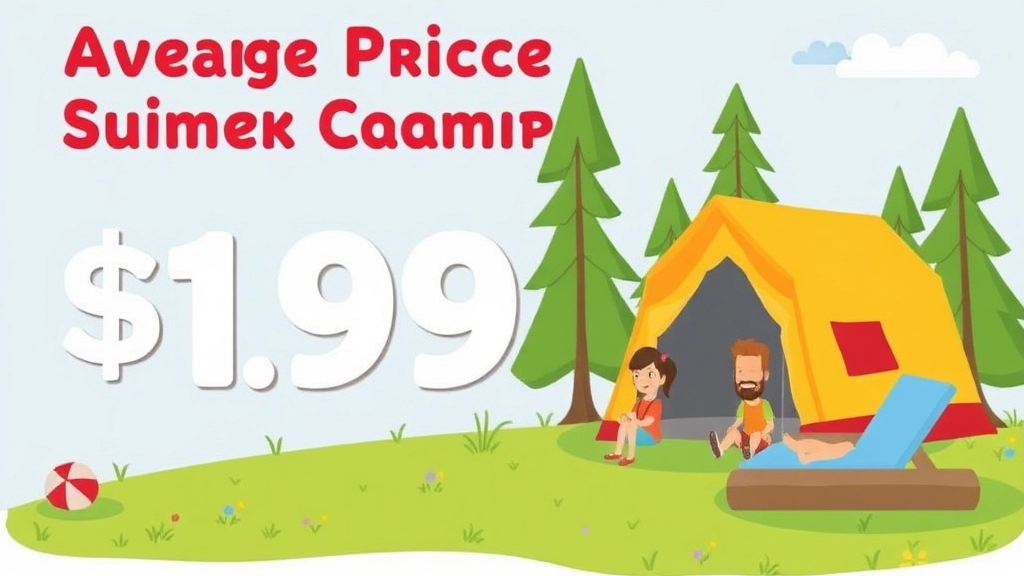Understanding Summer Camp Costs
Ever wondered why the cost of summer camps can vary so dramatically? You’re not alone. Parents everywhere are trying to navigate the maze of camp pricing to find the best experience for their kids without breaking the bank. This article breaks down the average price of summer camps, exploring factors that influence costs, the price range for both day and overnight camps, regional variations, hidden fees, and more. We’ll also compare specialty camps vs. traditional camps, discuss financial aid options, and provide tips for finding affordable camps.
From understanding how location and activities can drive up prices to uncovering hidden costs and exploring financial aid opportunities, we’ve got you covered. Whether you’re looking for a cost-effective day camp or considering splurging on a specialty overnight camp, this guide will equip you with the knowledge you need to make an informed decision. So, let’s dive in and unravel the mystery behind the average price of summer camps!
Factors Influencing the Cost of Summer Camps
Alright, let’s dive straight into it. Ever wondered why some summer camps cost an arm and a leg while others seem pretty affordable? You’re not alone. Parents everywhere are scratching their heads over this one. Let’s break it down.
What Drives Summer Camp Prices?
1. Location, Location, Location
The first biggie is where the camp is located. Camps in prime spots like the countryside or near a lake tend to charge more. Think about it â you’re paying for that serene view and fresh air.
2. Duration of the Camp
Is it a week-long camp or a month-long adventure? The longer the camp, the more you’ll shell out. It’s simple math.
3. Type of Camp
- Day Camps: These are generally cheaper since kids return home each night.
- Overnight Camps: Expect to pay more for the full experience, including lodging and meals.
4. Activities and Facilities
Does the camp offer horseback riding, sailing, or high-tech robotics labs? The more specialised and high-end the activities, the higher the cost.
5. Staff-to-Camper Ratio
Camps with a low staff-to-camper ratio often charge more. Why? Because you’re paying for more personalised attention and care.
6. Reputation and Accreditation
A camp with a stellar reputation and multiple accreditations will often charge a premium. After all, you’re paying for peace of mind.
7. Additional Services
Some camps offer extra services like transportation, special diets, or one-on-one tutoring. These add-ons can significantly bump up the price.
Real-Life Example
I remember chatting with a friend over coffee about her daughter’s camp experience. She chose a camp with a strong focus on STEM activities and was willing to pay extra for the specialised curriculum. Her daughter came back with a newfound love for coding. Worth every penny, she said.
For those looking to manage costs, there are also free summer camps available that offer great experiences without breaking the bank.
Average Price Range for Day Camps

Ever wondered how much day camps cost?
I get it. It’s a big question for parents planning summer activities for their kids.
Day camps can vary a lot in price.
So, what’s the average range?
Breaking Down the Costs
Let’s get into it.
Typical day camps usually charge between £20 to £70 per day.
Yeah, it’s a wide range.
But it depends on a bunch of factors.
Factors Affecting Costs
- Location: Urban areas tend to be pricier.
- Camp duration: Longer camps might offer discounts.
- Activities: More specialised activities can bump up the price.
- Age group: Camps for younger kids might be cheaper.
Quick Example
Imagine a day camp in London.
They might charge around £60 per day.
But a similar camp in a smaller town?
You might only pay £30 per day.
Weekly Rates
Many camps offer weekly rates too.
Expect to pay between £100 to £350 per week.
Again, it depends on the same factors.
Hidden Costs
Beware of hidden fees.
- Registration fees
- Materials and supplies
- Field trips
These can add up quickly.
Real Talk
Parents often ask, “Is it worth it?”
If the camp offers unique experiences and keeps your child engaged, it can be.
But always do your research.
Tips for Saving Money
- Early bird discounts: Many camps offer lower rates if you book early.
- Sibling discounts: Got more than one kid? Ask about discounts.
- Local community centres: They often offer affordable options.
Final Thoughts
Day camps can be a fantastic way for kids to spend their summer.
But keep an eye on the costs.
And remember, the average price range for day camps is £20 to £70 per day.
Got questions? Drop them in the comments.
Or check out our guide on finding affordable summer camps.
Stay savvy, parents!
Average Price Range for Overnight Camps
Ever wondered, “How much is this overnight camp going to set me back?” You’re not alone. Parents everywhere are grappling with the same question. So, let’s break it down and get real about the cost of overnight camps. Trust me, by the end of this, you’ll have a clear picture.
What’s the Damage?
Alright, let’s get straight to the point. The average price range for overnight camps can vary widely. We’re talking anywhere from £400 to £1,200 per week. Yeah, I know, that’s quite the range. But there are a few factors at play here.
Factors Influencing Cost:
- Location: Camps in popular or scenic locations tend to charge more. Think Lake District vs. a local forest.
- Duration: Some camps run for a week, others for the entire summer. Longer stays usually mean a higher total cost but might offer a better deal per week.
- Facilities and Activities: Camps with state-of-the-art facilities or specialised programs (like horseback riding, sailing, or tech camps) often come with a heftier price tag.
- Staff-to-Camper Ratio: More personalised attention means more staff, which can drive up costs.
Breaking It Down:
| Camp Type | Average Cost (Per Week) |
|---|---|
| Basic Overnight Camp | £400 – £600 |
| Mid-Range Camp | £600 – £900 |
| Premium/Exclusive Camp | £900 – £1,200+ |
Why Such a Wide Range?
You might be thinking, “Why is there such a massive difference?” It boils down to what the camp offers. A basic camp might include standard activities like hiking and swimming, while a premium camp could offer specialised programs, gourmet meals, and plush accommodations.
Real Talk: Is It Worth It?
Now, you might be wondering if shelling out £1,200 for a week is worth it. Here’s a little story: A friend of mine sent his kid to a premium camp. Yes, it was pricey, but the kid came back with newfound confidence, lifelong friends, and a ton of stories. Sometimes, the experience can be priceless.
Hidden Costs to Watch Out For:
- Travel Expenses: Getting to and from the camp can add up.
- Special Equipment: Some camps require specific gear.
- Additional Activities: Extra costs for special excursions or activities.
Looking for more tips on finding the perfect camp? Check out our section on summer camp scholarships. Trust me, it’s packed with actionable advice.
And if you’re curious about unique camp experiences, don’t miss our guide on Valorant Esports Summer Camp for a thrilling adventure.
Regional Variations in Summer Camp Costs

Ever wondered why summer camp prices can be all over the place?
Regional variations in summer camp costs can be a real head-scratcher.
But don’t worry, I’ve got you covered.
Let’s break it down.
Why Do Prices Vary?
Different regions have different living costs.
And that trickles down to summer camps.
Here’s what you need to know:
- Urban vs. Rural: Camps in big cities? Expect to pay more. Rural areas? Usually cheaper.
- East Coast vs. West Coast: East Coast camps often come with a heftier price tag.
- Popular Destinations: Camps in tourist hotspots? Yep, they’ll cost you more.
Real-Life Examples
Take a camp in New York City.
You’re looking at higher costs due to the high living expenses.
Now, compare that to a camp in rural Ohio.
Much easier on the wallet, right?
What’s Included?
Sometimes, a higher price means more perks.
- Special Activities: Surfing in California? Horseback riding in Texas? These add up.
- Facilities: Top-notch facilities in affluent areas can bump up the cost.
- Staff: Highly qualified staff in certain regions can also increase fees.
Hidden Costs
Watch out for those sneaky extras.
- Travel Costs: Getting to a remote camp can be pricey.
- Gear: Some camps require specialised equipment.
- Insurance: Some regions may have higher insurance rates.
How to Navigate This?
Look for camps that offer a good balance of cost and quality.
Here’s a quick checklist:
- Compare Prices: Don’t just go with the first camp you find.
- Ask for Discounts: Some camps offer early bird or sibling discounts.
- Check Reviews: See what other parents are saying about the value.
Additional Fees and Hidden Costs to Consider
Alright, let’s get real here. When it comes to summer camps, the advertised price is just the tip of the iceberg. You might be asking yourself, “What other costs should I be aware of?” Trust me, you’re not alone. These hidden fees can sneak up on you faster than you can say “s’mores.”
Equipment and Gear
First off, think about equipment and gear. Camps often require specific items like sleeping bags, hiking boots, or even special clothing. These costs can add up quickly, especially if your child is attending a specialty camp that requires unique gear.
- Sports Camps: Think about uniforms, protective gear, and sports-specific equipment.
- Adventure Camps: Items like trekking poles, high-quality backpacks, and durable footwear.
- Art Camps: Supplies like paints, brushes, sketchbooks, and other creative materials.
Activity Fees
Next up, we’ve got activity fees. Many camps offer extra activities that aren’t included in the base price. Things like horseback riding, water skiing, or even special excursions can come with additional costs.
- Horseback Riding: Often an extra charge per session.
- Water Sports: Fees for equipment rental or specialized instruction.
- Field Trips: Costs for transportation, entry fees, and sometimes even meals.
Meals and Snacks
Don’t forget about meals and snacks. While some camps include meals in their fees, others might have you paying extra for snacks or special dietary requirements. If your child has specific dietary needs, be prepared for potential additional costs.
Travel Expenses
Travel expenses are another biggie. Getting your child to and from camp can be costly, especially if the camp is far from home. Consider the price of gas, airfare, or even train tickets.
Medical and Insurance Fees
Let’s talk about medical and insurance fees. Some camps require additional insurance, or they might have fees for medical services provided on-site. Always check the camp’s policy on this.
- Medical Forms: Sometimes there’s a fee for processing these.
- Insurance: Camps may require or offer additional insurance coverage.
Camp Merchandise
Lastly, there’s the camp merchandise. Camps often sell branded items like T-shirts, hats, and water bottles. While these aren’t mandatory, they can be hard to resist, especially for kids who want a memento of their experience.
Real-Life Example
I remember sending my nephew to a football camp a couple of years ago. The base price seemed reasonable, but by the time we factored in the cost of new cleats, a helmet, and those extra training sessions he just “had to have,” the total cost had nearly doubled. It was a classic case of hidden fees catching us off guard.
Quick Tips to Avoid Hidden Costs
- Ask for a Detailed Breakdown: Before committing, ask the camp for a detailed list of potential additional costs.
- Budget for Extras: Set aside a portion of your budget for unexpected expenses.
- Look for All-Inclusive Camps: Some camps offer all-inclusive packages that cover activities, meals, and gear.
Comparing Specialty Camps vs. Traditional Camps

Ever wondered what the real difference is between specialty camps and traditional camps?
Let’s dive right in.
What’s the Deal with Specialty Camps?
Specialty camps are like the VIP section of summer camps.
They focus on one thing and do it well.
Think sports, arts, coding, or even space camp.
Why go for a specialty camp?
- Laser-Focused Learning: Your kid gets to dive deep into a specific interest.
- Expert Instructors: Usually, these camps bring in pros who know their stuff.
- Unique Opportunities: Ever wanted to train with a real astronaut? Specialty camps make it happen.
But, here’s the kicker.
Specialty camps can cost a pretty penny.
Traditional Camps: The All-Rounder
Traditional camps are your classic summer experience.
Think campfires, swimming, and a bit of everything.
What’s in it for you?
- Variety: Kids get to try a range of activities.
- Social Skills: Great for making friends and building teamwork.
- Balanced Fun: Keeps kids engaged with a mix of learning and play.
And guess what?
They’re usually easier on the wallet.
Cost Comparison
Let’s break it down.
- Specialty Camps: Often range from £500 to £2,000 per week.
- Traditional Camps: Typically cost between £200 and £800 per week.
So, what’s the real question here?
What does your kid really want out of their summer?
Real Talk: Personal Stories
I remember sending my nephew to a coding camp.
He came back talking about algorithms like they were new Pokémon.
But, it cost a fortune.
On the flip side, my friend’s daughter went to a traditional camp.
She learned archery, made lifelong friends, and it didn’t break the bank.
Making the Choice
Here’s a quick checklist to help you decide:
- Interest Level: Is your kid passionate about a specific activity?
- Budget: How much are you willing to spend?
- Goals: Are you looking for skill-building or just a fun time?
Financial Aid and Scholarships for Summer Camps
Wondering how to afford summer camps? You’re not alone. Many parents grapple with the costs, especially when it feels like every camp is out to drain your wallet. But don’t sweat itâthere are ways to make summer camp more affordable without sacrificing quality or experience.
Why Financial Aid and Scholarships Matter
Let’s face it: summer camps can be pricey. But hey, every kid deserves a summer filled with adventure, learning, and fun, right? That’s where financial aid and scholarships come into play. These options can significantly reduce the cost, making camps accessible to more families.
Types of Financial Aid and Scholarships
Here’s the lowdown on the different types of financial aid and scholarships you can tap into:
- Need-Based Scholarships: These are based on your financial situation. If your income is on the lower side, you might qualify for a need-based scholarship.
- Merit-Based Scholarships: Got a kid who excels in sports, arts, or academics? Merit-based scholarships reward talents and achievements.
- Camp-Specific Scholarships: Some camps offer their own financial aid programs. Always ask the camp directly about any available scholarships.
- Community-Based Scholarships: Local organisations, charities, and even businesses often provide scholarships for summer camps. It’s worth checking out what’s available in your area.
How to Apply for Financial Aid and Scholarships
Applying for financial aid and scholarships can feel like jumping through hoops, but it’s totally worth it. Here’s a simple breakdown:
- Research: Start early. Look up camps and their financial aid options. Websites and camp brochures are gold mines for this info.
- Prepare Documents: Gather your financial records, tax returns, and any other required documents. Some camps might ask for proof of income or a detailed financial statement.
- Fill Out Applications: Complete the forms accurately. Double-check everything to avoid delays.
- Submit Early: Deadlines can sneak up on you. Submit your applications as soon as possible to increase your chances.
- Follow Up: After submitting, follow up with the camp to ensure they received your application and to ask about the timeline for decisions.
Real Stories: How Families Benefited
Take the Johnson family, for example. They were worried they couldn’t afford the camp their daughter dreamed of attending. By applying for a need-based scholarship, they managed to cut the cost by half. Their daughter had a blast, and they didn’t have to break the bank.
Or consider the Smiths, who found a community-based scholarship through their local Rotary Club. Their son got to attend a science camp, and they only had to cover a fraction of the cost.
Tips for Maximising Financial Aid
Want to make the most out of financial aid opportunities? Here are some pro tips:
Tips for Finding Affordable Summer Camps
Wondering how to find an affordable summer camp?
You’re not alone.
With the cost of summer camps skyrocketing, parents everywhere are stressing over how to keep their kids entertained without breaking the bank.
Let’s dive into some practical tips to help you find a budget-friendly camp that your child will love.
1. Start Early
The early bird gets the worm.
- Early registration discounts: Many camps offer reduced rates if you sign up months in advance.
- More options: You get to choose from a broader range of camps before they fill up.
2. Look for Community Programs
Local gems can be a goldmine.
- Community centres: Local YMCAs and community centres often run affordable day camps.
- Schools and churches: These institutions sometimes host summer camps at lower costs.
3. Ask About Sibling Discounts
Got more than one kid?
- Sibling discounts: Some camps offer discounts if you enrol more than one child.
- Referral programs: Refer a friend and you might get a discount on your fees.
4. Check for Financial Aid and Scholarships
Money tight? No worries.
- Scholarships: Many camps offer financial aid or scholarships.
- Sliding scale fees: Some programs adjust their fees based on your income.
5. Consider Day Camps Over Overnight Camps
Day camps can be a great alternative.
- Lower cost: Generally cheaper than overnight camps.
- Flexibility: Easier to fit into your schedule and budget.
6. Explore Specialty Camps
Sometimes niche is cheaper.
- Shorter duration: Specialty camps often run for just a week or two.
- Focused activities: If your child is into a specific activity, these camps can be more cost-effective.
7. Network with Other Parents
Word of mouth is powerful.
- Parent groups: Join local parent groups on social media for recommendations.
- School networks: Ask other parents at your child’s school about affordable camps.
8. DIY Summer Camp
Why not create your own?
- Home-based activities: Plan a series of fun, educational activities at home.
- Neighbourhood co-op: Team up with other parents to share the load and costs.
9. Use Online Resources
The internet is your friend.
- Camp directories: Websites like CampInTouch or ActivityHero list various camps, often with pricing info.
- Discount sites: Check Groupon or local deal sites for camp discounts.
10. Be Flexible with Dates
Timing can save you money.
- Off-peak weeks: Camps might offer lower rates during less popular weeks.
- Last-minute deals: Some camps offer discounts to fill up remaining spots.
For more detailed tips and strategies, you might find our effective summer camp ads strategies helpful. Additionally, if you’re curious about the overall costs and how to budget, check out our guide on average summer camp costs and budget tips.
FAQs on the Average Price of Summer Camps
What is the average price range for day camps?
The average price range for day camps typically falls between £20 to £70 per day. However, this can vary based on several factors such as location, camp duration, and the types of activities offered.
What factors affect the cost of day camps?
Several factors can influence the cost of day camps, including:
- Location: Urban areas tend to be pricier.
- Camp duration: Longer camps might offer discounts.
- Activities: More specialized activities can increase the price.
- Age group: Camps for younger kids might be cheaper.
Are there additional costs to consider?
Yes, be aware of hidden fees such as:
- Registration fees
- Materials and supplies
- Field trips
These can add up quickly.
What are the typical weekly rates for day camps?
Weekly rates for day camps usually range between £100 to £350 per week, depending on the same factors that affect daily rates.
Why do summer camp prices vary by region?
Regional variations in summer camp costs are influenced by factors such as:
- Urban vs. Rural: Camps in big cities are generally more expensive.
- East Coast vs. West Coast: East Coast camps often have higher prices.
- Popular Destinations: Camps in tourist hotspots tend to cost more.
What’s the difference between specialty camps and traditional camps?
Specialty camps focus on specific activities like sports, arts, or coding and usually have higher fees, ranging from £500 to £2,000 per week. Traditional camps offer a variety of activities and are generally more affordable, with costs ranging from £200 to £800 per week.
How can I save money on summer camps?
Here are some tips to help you save money:
- Early bird discounts: Many camps offer lower rates if you book early.
- Sibling discounts: Ask about discounts if you have more than one child attending.
- Local community centres: They often offer more affordable options.
Is it worth spending more on a summer camp?
If the camp offers unique experiences and keeps your child engaged, it can be worth the investment. However, always do your research to ensure you’re getting good value for your money.
References
-
Average Cost of Summer Camp
-
How Much Does Summer Camp Cost?
-
How Much Does Summer Camp Cost?

